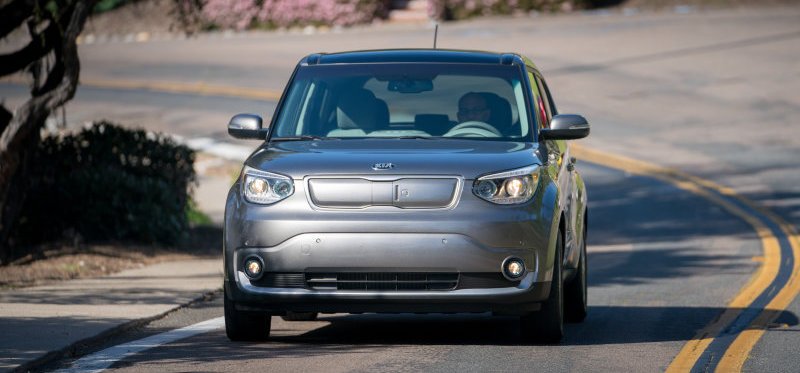As the industry continues to build out electric vehicle charging infrastructure, parallel projects are working to improve it as quickly as it's deployed. Now we're seeing some groups launching fast charging stations capable of 350-kW, and more. Meanwhile, wireless charging is making advances, which would allow drivers to simply park and charge without fussing with a cable. Kia is the latest to test inductive charging, and has announced that it has deployed a fleet of Soul EVs capable of recharging wirelessly.
The three-year project — a partnership between the Hyundai-Kia America Technical Center, wireless charging company Mojo Mobility and the U.S. Department of Energy's Office of Energy Efficiency and Renewable Energy (EERE) — culminated in the system being equipped to five vehicles and tested in real-world environments. The system uses electromagnetic fields transmitted between a transmitter coil on the ground and a receiver on the bottom of the car to transfer energy. It can charge at over 10 kW, with 85 percent grid-to-vehicle efficiency.
Kia adds that because the system is so efficient, it can still charge even if there is some misalignment between the two coils. That means an imperfect parking job doesn't mean the car won't charge.
Other automakers are also testing wireless charging, and BMW plans to offer it on a limited basis in the U.S. for its 530e plug-in hybrid. Kia is not making any promises to customers yet, though. "There is no current plan to offer the wireless charging system on production vehicles for sale to consumers," Kia stated in its press release, "however, the success of this development project suggests similar systems are possible on future Kia electric vehicles."
Wireless charging could play well with other technology for Kia. For instance, it would be a boon for autonomous efforts, which the Korean automaker has begun undertaking with the testing of self-driving Soul EVs in Nevada. Wireless charging means an autonomous Kia could not only drive and park itself, but also take care of its own charging duties.
Related News

